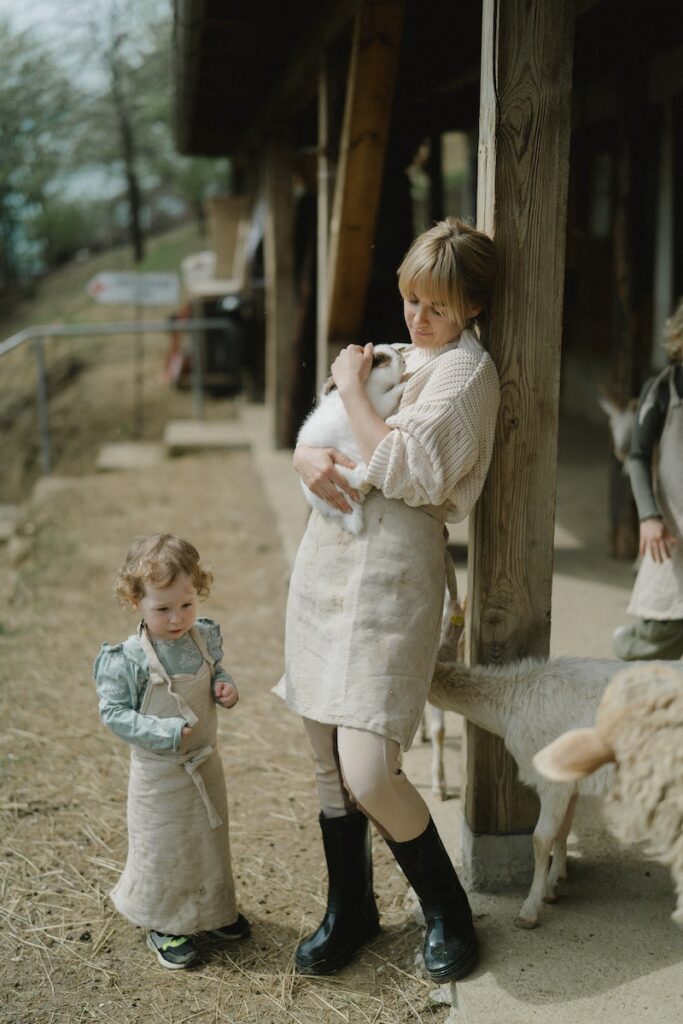Are you a city slicker or a country bumpkin at heart? The debate between city life vs country life has been an ongoing conversation for decades, and it’s not going away anytime soon.
While both lifestyles have their pros and cons, there is no denying that they offer vastly different experiences.
Living in big cities means being surrounded by the hustle and bustle of urban life. With endless options for entertainment, dining, and shopping, it’s easy to see why so many people are drawn to this lifestyle. However, city living also comes with its fair share of challenges such as high living costs, traffic congestion, and noise pollution.
On the other hand, living in the countryside offers a sense of peace and serenity that is hard to find in the city. Surrounded by nature and fresh air, it’s no wonder why some people choose to leave behind the chaos of urban life for a more laid-back lifestyle. But with limited access to amenities and job opportunities, country living can also be challenging in its own ways.
Table of Contents
Urban Lifestyle: Pros And Cons
They say that the city never sleeps, but it’s also true that it can be a lonely place. The urban lifestyle has its pros and cons, just like any other way of living.
On one hand, there are endless opportunities for culture, entertainment, and career growth. You can find any type of cuisine you desire at any time of day or night. The public transportation system is usually efficient and can take you anywhere you need to go.
However, the city also comes with its own set of challenges. It’s expensive to live in a major metropolitan area, and the high expenses can push people into debt or poverty. There’s also the issue of safety; crime rates tend to be higher in cities than in rural areas.
Plus, with so many people crowded together in such a small space, it’s difficult to feel connected to anyone or anything.

Rural Living: Advantages And Disadvantages
Rural life has its advantages and disadvantages.
On the one hand, it provides a sense of peace, tranquility, and privacy that is hard to find in cities. You can enjoy fresh air, quiet surroundings, and beautiful landscapes that are good for your soul. Also, you can cultivate your own garden, grow your own food, and live a more self-sufficient lifestyle.
However, living in rural areas also has some drawbacks. For instance, you may have limited access to healthcare services or educational facilities. Moreover, you may face challenges related to transportation or employment opportunities.
Therefore, before deciding to move to a rural area, it’s essential to weigh the pros and cons carefully and consider what matters most to you in life.

Access To Amenities And Services
Living in a rural area has its advantages and disadvantages, but what about access to amenities and services? While the city lifestyle offers convenience with an abundance of shops, restaurants, and entertainment options within walking distance or a short drive away, country life may lack these amenities. However, living in the country often means more space and nature around you, which can be a great escape from the hustle and bustle of city living.
Despite some challenges, rural areas have their own unique charm that appeals to many people.
- Access to healthcare may be limited in rural areas due to a shortage of medical professionals.
- In some cases, delivery services may not be available in certain rural areas.
- Rural communities often rely on local farmers for fresh produce and food rather than large supermarkets.
- Living costs can be lower in rural areas compared to cities.
These factors highlight the trade-offs between city life and country life. While access to amenities is easier in cities, it comes with higher costs of living. In contrast, rural areas offer affordability but may lack certain conveniences.
Ultimately, the choice between city life and country life will depend on personal preferences and priorities.
Job Opportunities: Differences Between City Vs Country
According to recent studies, job opportunities in the city are far more abundant than those in the country. This is due to a number of factors, such as the concentration of businesses and industries in urban areas, as well as the higher demand for skilled workers.
In fact, cities often offer a wider range of career paths and higher salaries than rural areas. However, it’s important to note that living and working in the city can also bring about its own set of challenges, such as longer commutes and higher cost of living.
On the other hand, while job opportunities in rural areas may be more limited, there is often a stronger sense of community and connection between residents. Ultimately, the decision between city or country living should be based on individual preferences and priorities when it comes to career growth and overall quality of life.

Finding Your Ideal Lifestyle: Factors To Consider
Now that we’ve examined job opportunities in the city versus the country, it’s time to consider the bigger picture of finding your ideal lifestyle.
While job prospects are important, they are just one factor to consider when deciding between city life and country life.
It’s crucial to take into account your personal preferences and values, such as access to nature, community involvement, and cultural activities.
Additionally, think about practical considerations like living costs, transportation options, and proximity to family and friends.
Ultimately, the decision between city and country living is a highly personal one that requires thoughtful reflection on what type of environment will allow you to thrive both personally and professionally.
Frequently Asked Questions
What Are Some Examples Of Specific Amenities And Services That May Be More Readily Available In The City Versus The Country?
People often debate the benefits of living in a city versus the country. However, it’s clear that certain amenities and services are more readily available in urban areas.
For example, cities typically offer a wider range of entertainment options such as theatres, museums, and sporting arenas. Additionally, access to public transportation is often easier in cities, making it simpler for residents to get around without a car.
While there are certainly advantages to living in the country, it’s important to recognize the conveniences that come with city life.
How Does The Cost Of Living Differ Between Urban And Rural Areas?
While living cost is influenced by several factors, such as income and lifestyle choices, it’s no secret that urban areas tend to have a higher cost of living compared to rural areas.
In cities, housing costs are often more expensive due to higher demand and limited space. Additionally, transportation costs can add up quickly in cities where public transit or ride-sharing services may be necessary for getting around. However, city dwellers may also have access to higher-paying job opportunities and a wider range of amenities that could potentially offset the higher expenses.
On the other hand, those who choose to live in rural areas may enjoy lower housing costs and a slower pace of life but could face fewer job prospects and limited access to certain services.
Ultimately, the decision between urban or rural living boils down to personal preferences and priorities.
Are There Any Unique Job Opportunities That Are Only Available In Rural Areas?
Nestled among the rolling hills and lush greenery of rural areas are unique job opportunities that can’t be found in the hustle and bustle of the city.
Picture yourself waking up to the sound of roosters crowing, breathing in fresh air, and heading out to tend to your flock of sheep or cows.
Agriculture and farming are not only a way of life but also offer an array of jobs like farm managers, livestock breeders, and agricultural scientists that require a deep connection to nature.
Other rural job opportunities include positions in wildlife management, forestry, and outdoor recreation.
So if you’re someone who enjoys working with your hands, cherishes a peaceful environment, and wants to make a difference in conserving our natural resources, then perhaps a career in rural areas is worth considering.
What Are Some Potential Drawbacks To Living In A Small, Tight-Knit Community In The Country?
Living in a small, tight-knit community in the country has its perks, such as a strong sense of community and connection with nature.
However, it’s important to consider the potential drawbacks before making the move.
One major downside is that everyone knows everyone else’s business, which can be overwhelming for those who value privacy.
Additionally, opportunities for social and cultural experiences may be limited compared to city living.
It’s important to weigh the pros and cons before deciding if this type of lifestyle is right for you.
How Do Factors Such As Climate And Geography Affect The Decision To Live In The City Versus The Country?
When it comes to deciding where to live, factors such as climate and geography play a significant role.
Some people prefer the hustle and bustle of big city life, while others crave the peace and quiet of the countryside.
For those who value warm weather and access to beaches or mountains, living in the country may not be the best option.
On the other hand, if you enjoy four distinct seasons and wide-open spaces, city living might not be for you.
Ultimately, it all comes down to personal preference and what makes you feel most at home.
Conclusion
In conclusion, the decision on the city vs country ultimately comes down to personal preference and lifestyle.
While cities may offer more amenities and job opportunities, they often come with higher living costs and crowded living conditions.
On the other hand, rural areas may provide a slower pace of life and a tight-knit community but may lack certain services and job opportunities.
Regardless of where one chooses to live, it is important to weigh the pros and cons, considering factors such as climate and geography.
At the end of the day, both city life and country lifestyle have their own unique charms that can be appreciated in their own way.
It’s all about finding what works best for you and your individual needs.

